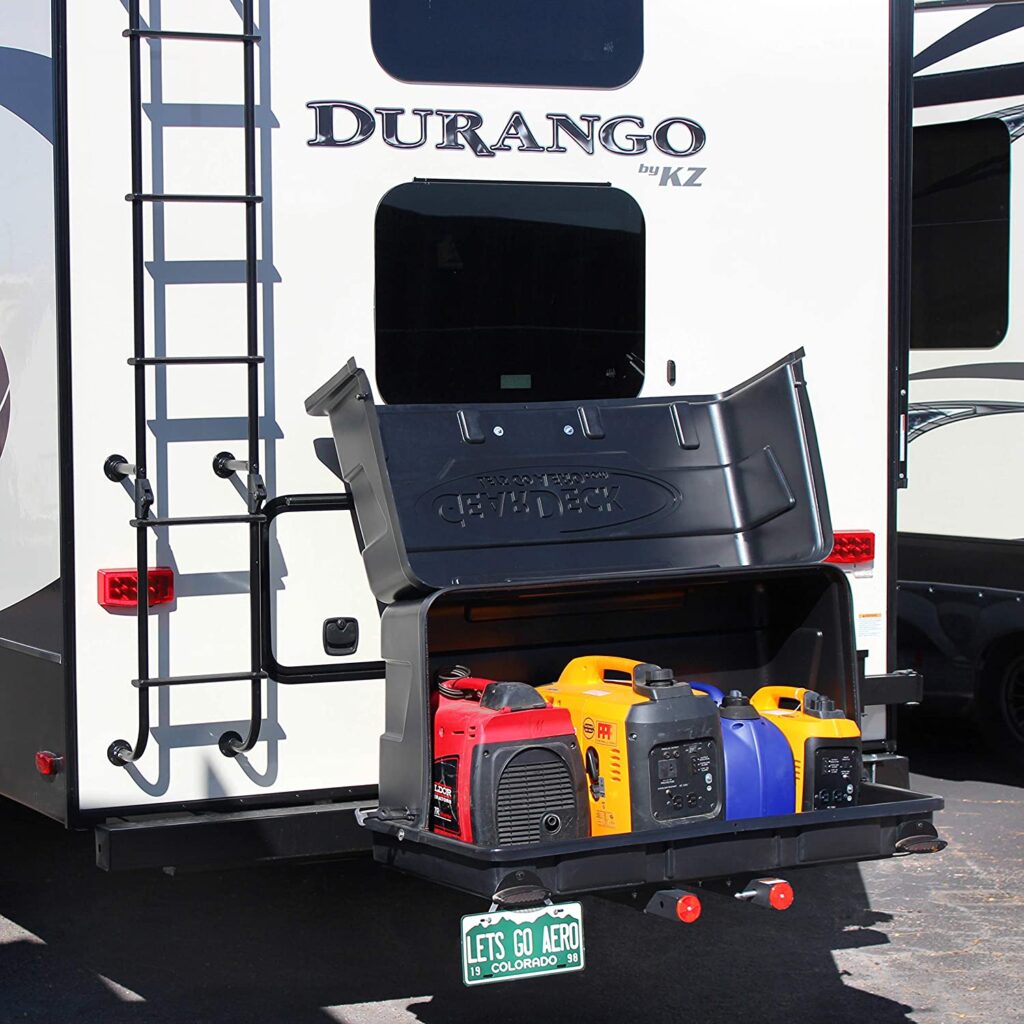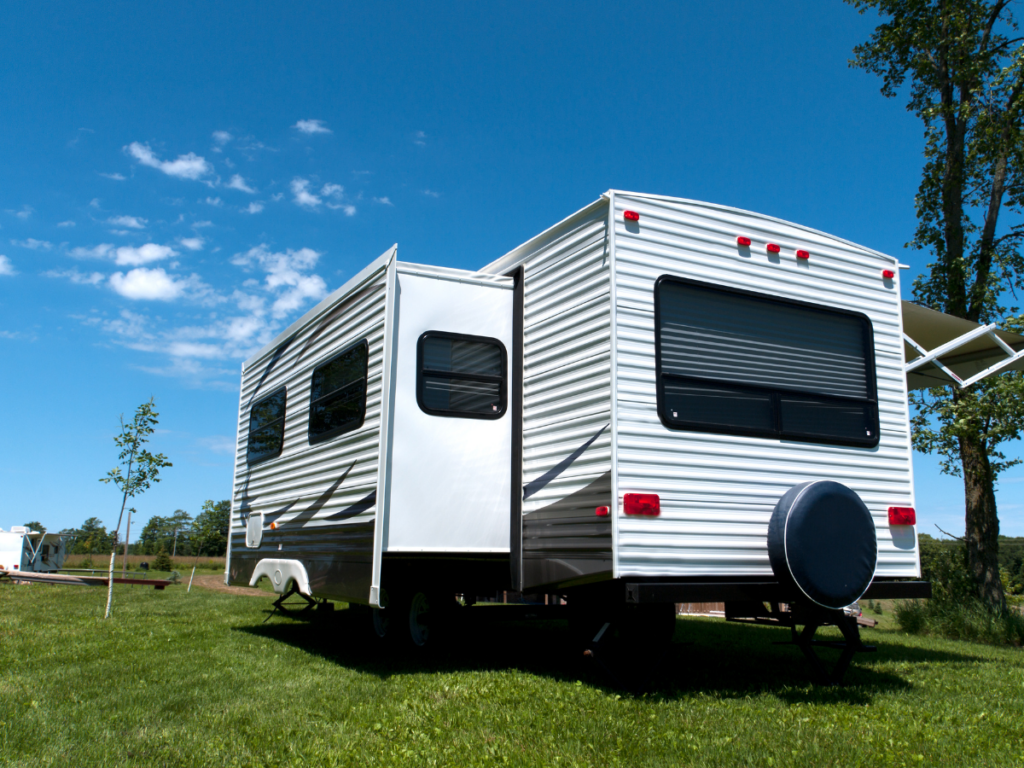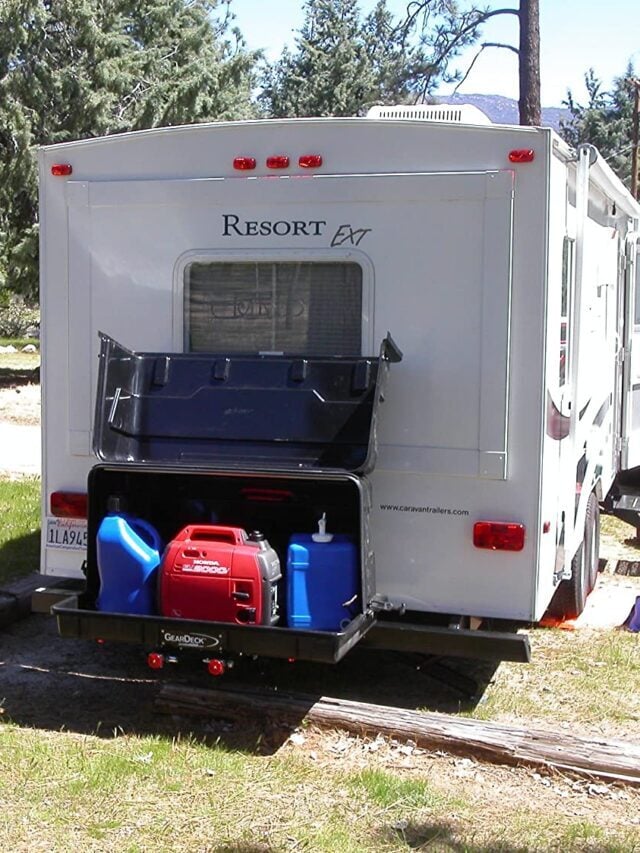Hunting and Fishing News & Blog Articles
The Pros And Cons Of RV Hitch Storage
Facebook Twitter Pinterest LinkedIn

What You Should Know About RV Hitch Storage
One of the biggest struggles for many people while using their RV is not having enough storage. This is especially true for people who live full-time in their camper, travel with the whole family, or have a smaller RV.
While there are a few different options to create more storage, one of the easiest and cheapest ways is with an RV hitch storage solution. Hitch storage can attach directly to a tow hitch receiver, giving you space for more supplies.
When choosing the best extra storage solution for your RV, you must consider your needs, usage, and RV configuration. To make things easier, we’ve compiled a list of the pros and cons of using RV hitch storage. Keep reading to see whether hitch storage is the best decision for your extra space needs.
The pros of RV hitch storage
Let’s look at the many advantages of hitch storage, specifically when compared to alternate solutions such as roof racks. On top of adding additional space, their ease of use and multiple options make them attractive to RV owners.
Additional storage space
The main goal for RV hitch storage is to increase the amount of storage on your rig. If you struggle to fit all your luggage or tools into your RV, hitch storage might be the solution for you. RV hitch storage options may be particularly beneficial for people with smaller campers or even vans.
They can still be beneficial for even the largest of fifth wheels. It’s a perfect place to store things you don’t want inside your RV for whatever reason. You may prefer to leave items like jerry cans, generators, or fishing gear on the outside of your rig.
Inexpensive
When compared to other storage solutions for RVs, hitch storage is relatively inexpensive. Decent options start at around $200 and go up from there. While this may not seem cheap to some, it certainly is when you compare it to purchasing a larger rig with more storage options.
Other options like roof racks or a small trailer can set you back $500 or more.
Little impact on fuel economy
The good news about RV hitch storage devices is that they don’t drastically change the aerodynamics of your RV. That means there isn’t a significant change in the fuel efficiency that you’re used to. Since the hitch rack or box won’t be wider than your rig, you will hardly notice it’s back there when you’re driving.
This is a huge difference when compared to a roof rack. Roof racks alter your vehicle’s aerodynamics drastically, affecting gas usage, drag, and how the rig handles.
Easy to use
Perhaps the biggest pro of RV hitch storage solutions is their ease of use. As long as the vehicle you want to attach it to has a tow hitch, mounting and dismounting an RV hitch storage unit is a breeze. Hitch racks are much lighter than roof boxes, which means one person can handle the installation.
Hitch racks and boxes are also much easier to load. Considering they’re below waist level, even heavy items can be loaded without dangerously hoisting them overhead. In addition, they’re relatively small, making storage easier to manage when they’re not in use. Plus, cleaning them is a simple process.
Different options based on needs
There are several options for RV hitch storage. You can choose which one makes the most sense based on your needs. The most common one is the hitch storage rack. Items can be placed directly on the frame and held down using straps.
If you need something that will protect your items from the weather, there are also hitch cargo carriers. They look like toolboxes and can be closed and locked. Not only do these protect the contents from the elements, but they may be safer if you plan to leave the vehicle unattended.
Lastly, there are specialized RV hitch storage options. For example, you can get hitch-storage bike racks. These are designed specifically to keep bikes in place and can often fit multiple bicycles on one rack. There are other specialized racks for fishing, hunting, grilling, skiing, and more.
Cons of RV hitch storage
Of course, as with most things, some challenges come with RV hitch storage. It can make it more difficult to maneuver your rig and put you at risk of theft when you leave your items.
Difficult to back in
As if backing in an RV isn’t challenging enough, adding an extra few feet of hitch storage isn’t going to make things any easier.
The biggest issue for most drivers is that they simply forget the storage rack is back there. You wouldn’t be the first person to back into something with a hitch storage device.
Lack of security
Depending on what type of hitch storage you’ve purchased, you may encounter an issue with security. When using an RV hitch storage rack, leaving your vehicle unattended is not a good idea.
Unless your items are chained down with a lock, they may potentially get stolen. This risk can be minimized by opting for a hitch storage box or somehow locking your supplies to the hitch.
Complicated configuration
Depending on the configuration of the rear of your RV and the size of the items you’re putting on the hitch storage, you may block your vehicle’s lights or license plate.
This is not only a potential hazard but may even be illegal, depending on what state you’re in. You may have to adjust the lights on your vehicle or purchase a hitch storage option with integrated lights.
Requires hitch receiver
While some hitch storage options can be easy to install when your rig already has a trailer hitch, not all RVs have them. If your travel trailer or fifth wheel doesn’t have a trailer hitch, the good news is that you can install one. However, this, of course, requires effort and money.
There are also some storage racks that can be mounted with brackets directly on the bumper.
Check with a professional to ensure that installing a trailer hitch receiver or bumper-mounted storage rack on your specific model is safe. Depending on your RVs configuration, you may have to install stabilizing brackets to give the storage rack extra support.

If your trailer or fifth wheel doesn’t have a tow hitch receiver, you’ll have to have one installed or opt for a bumper-mounted storage rack.
Potential to damage your RV
While many motorhomes come standard with tow hitches, most towable RVs don’t. If you have to attach your hitch storage to your bumper or install a tow hitch, you run the risk of damaging your rig. The extra weight of the storage rack and the items on it could cause bumper failure or unwanted sway of your vehicle. It’s important to stick to weight limits to prevent issues, whether you’re attached directly to a tow hitch or you had to weld the rack on.
RVers looking for valuable how-to information have learned to go to the experts. Forums such as iRV2.com and blog sites like RV LIFE, Do It Yourself RV, and Camper Report provide all the information you need to enjoy your RV. You’ll also find brand-specific information on additional forums like Air Forums, Forest River Forums, and Jayco Owners Forum.
Related articles:
8 DIY RV Storage Ideas To Maximize SpaceThe Pros And Cons Of Flip-Down RV Storage Racks
Facebook Twitter Pinterest LinkedIn
The post The Pros And Cons Of RV Hitch Storage appeared first on RV LIFE.

